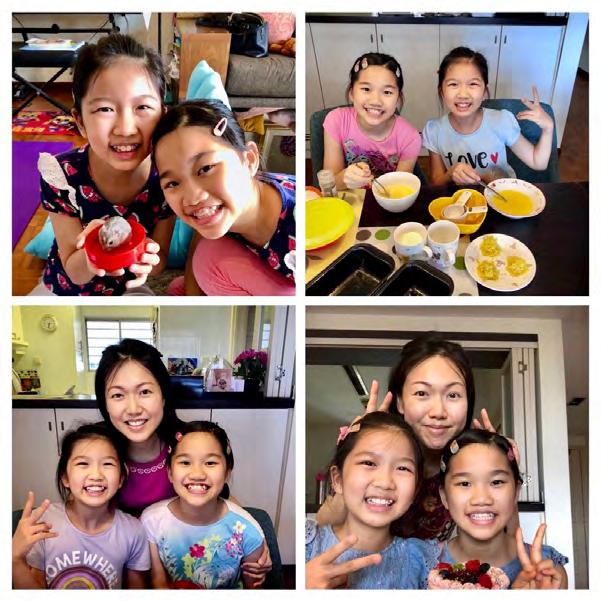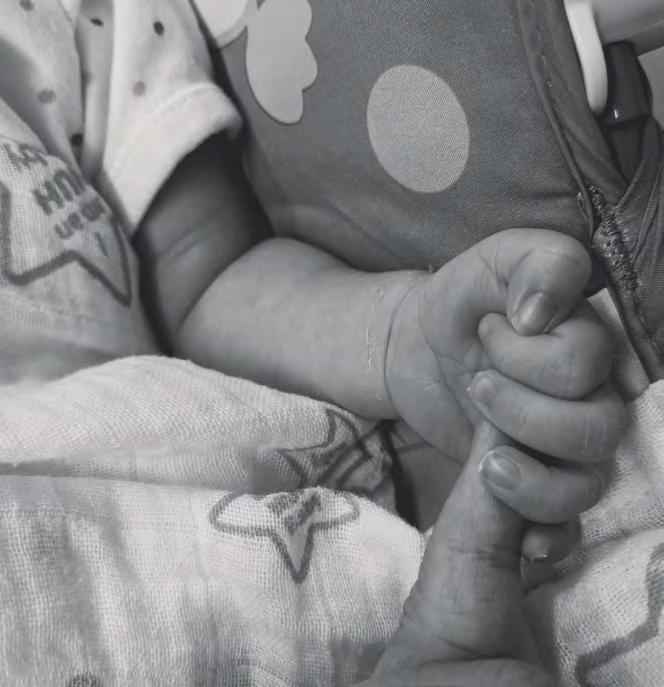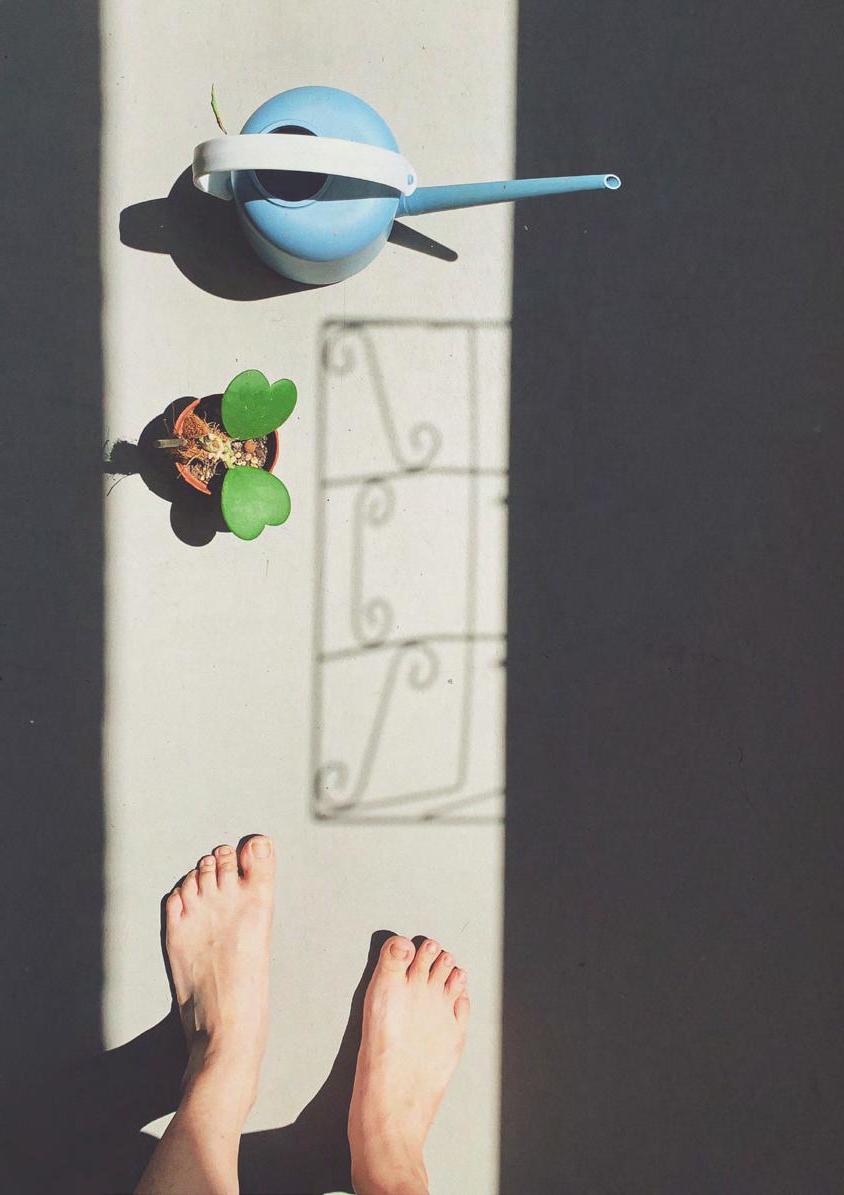
6 minute read
What If
Vara Hariharan
Advertisement
I little thought, when I taught Robert Burn’s poem ‘To a Mouse’ to my classes, that it would be a poem that my mind would keep returning to 35 years later. These lines from the poem have been an almost daily refrain in my head:
“the best-laid schemes of mice and men Go often awry and leave us nothing but grief and pain, For promised joy”
2020 has indeed been a year when my best-laid plans went awry, just as it has for many others.
Those who know me well tease me about my obsession with my planner. I have used the same type of monthly planner for more than 10 years, with neatly marked squares which I would fill with my scheduled meetings and to-do lists, stubbornly refusing to be enticed by online planners which did not give me the same pleasure and sense of accomplishment that came from crossing out and ticking off tasks and appointments.
Then the COVID-19 pandemic struck, and the squares filled with travel plans, meetings, study schedules and dinners emptied out. Amidst people who were mourning the loss of jobs and income, I could not voice the loss that those empty squares in my planner spelt for me: the loss of identity, the loss of purpose, the loss of social connection, the loss of passions. I felt a grief that I was embarrassed to voice.
Yet, this has been a season of loss of a number of roles and relationships that gave me purpose and joy. I had retired in 2018. My adult daughters are married and live abroad so the nest is empty. I became a grandmother for the first time at the end of 2019, but I cannot discover the joys of grand-mothering as COVID-19 forced me to return to Singapore. Activities that had filled my days—part-time teaching, tutoring, church, theatre, volunteering—all came to a stop. I was frightened by the magnitude and ferocity of the spread of the virus. I was also sad and lonely, asking the same question that many Christians must have been asking—why, God? How long, Lord? I don’t know if others received an answer; all I got was silence.
Then one day I was startled by a memory. In January, when reading an exposition of Judges by Timothy Keller, I had been struck by this quotation and copied it into my journal: “Outward gains are ordinarily attended with inward losses; while, conversely, ‘inward gains’—growth in humility, self-control,

wisdom—are ordinarily attached to ‘outward losses’ of our finances, careers or relationships failing.”
This quotation returned to me with a new force. Outward gains lead to inward losses. Outward losses lead to inward gain. Perhaps, when my life was full with appointments and plans, too much of my identity had been shaped by my outward gains. Perhaps, now, it was time to stop mourning the outward losses and turn my gaze inward. Perhaps, as Philip Yancey said in a podcast interview with Sheridan Voysey, “Why is this happening?” is the wrong question to ask God when things go wrong. When the unexpected happens, the questions to ask are, “Now that this has happened, what do you want me to do, Lord?” and more importantly, “Who do you want me to become?”
I have not figured out what God wants me to do or who He wants me to become in these murky times. But if this is your path too, I would like to share the “what if’s” I asked myself. 1. Re-position – What if, as the world of “doing” fades, God is calling me to shift my posture from “doing” to “being”? From listing my “to-do’s” to listening to God’s heart? Perhaps, Jesus is saying to the Martha in me, “You are anxious and troubled about many things, but one thing is necessary”, and I am being called to “choose the good portion” of sitting at His feet and listening to His teaching (Luke 10:3942). Perhaps, I need to shift from planning, to accepting that it is only the present that I will know with certainty.
2. Re-kindle – What if, this “new normal” is time to re-discover “the old normal”? Perhaps this hiatus is time to deepen the known, to re-set my true identity as child of God. Perhaps it is time to re-invest in relationships. During Quiet Time one day, God said, “Pray for those you have decided are ‘the impossibles’.” To me, those were my siblings. Over the years I have drifted away from my sisters and brother as they are very much older than me. During this lockdown period, I re-connected with my nephews and nieces and persuaded them to help my siblings use Zoom. I have been humbled by just how happy these monthly Zoom meetings have made my siblings. Perhaps there are people you have not invested time in before—old friends? Family that you have not talked with in a long while?
3. Rebel – What if when the old patterns have been challenged, it is an opportunity to dare do something that is unlike me? We think of God as powerful, holy, mighty, and He is all these, but perhaps we forget that God is creative. He is not one to be put in boxes, and made in His image, neither are we meant to be. The “old me” hesitated, but I sent out feelers in one of the WhatsApp groups I belonged to, to ask if anyone would like to try an online book club. This book club, with two women I had not met before, turned out to be the highlight of the Circuit Breaker period for me. It has resulted in an unexpected new friendship with women who are very unlike me, but who have blessed me with their vulnerability and spiritual walk.
4. Re-discover – What if, this period of uncertainty is the time to re-discover my interests, talents and spiritual gifts? Perhaps the busy, full life had led us to put aside tasks with the promise that we would do that one day. My online book club friends re-affirmed that teaching was my calling, but opportunities to teach students or facilitate professional development courses for teachers had disappeared. Interestingly, a letter included in the book we were discussing gave me a new direction. Responding to a teacher who felt frustrated that she did not get a teaching job she had applied for, Sheridan Voysey wrote,
“If God has gifted you to teach—if it flows in your bones and you’re effective doing it— then you are a teacher whether you have an official role or not. Who else in your community needs your gift? I’ll be praying for a place where their need and your talent can meet.”
That question, “Who else in your community needs your gift?”, helped to re-direct my searching. I do teach now—I teach English online to one migrant worker. He is just one, but the earnestness with which he copies new words into his notebook, his regret when he is unable to finish the homework and his hope—"Teacher Vara, one day I want to talk English like you”—is a re-discovery of a passion for me.
I would like to say that things have changed, but the world is still as it was. I’m writing still, out of a place of questions, silence and confusion. But I have learnt to wait. I have learnt to pray my lament. And I have learnt to not just listen to my heart, but to speak to it and say, “if we are faithless, He remains faithful, for He cannot deny Himself.” (2 Timothy 2:13)










